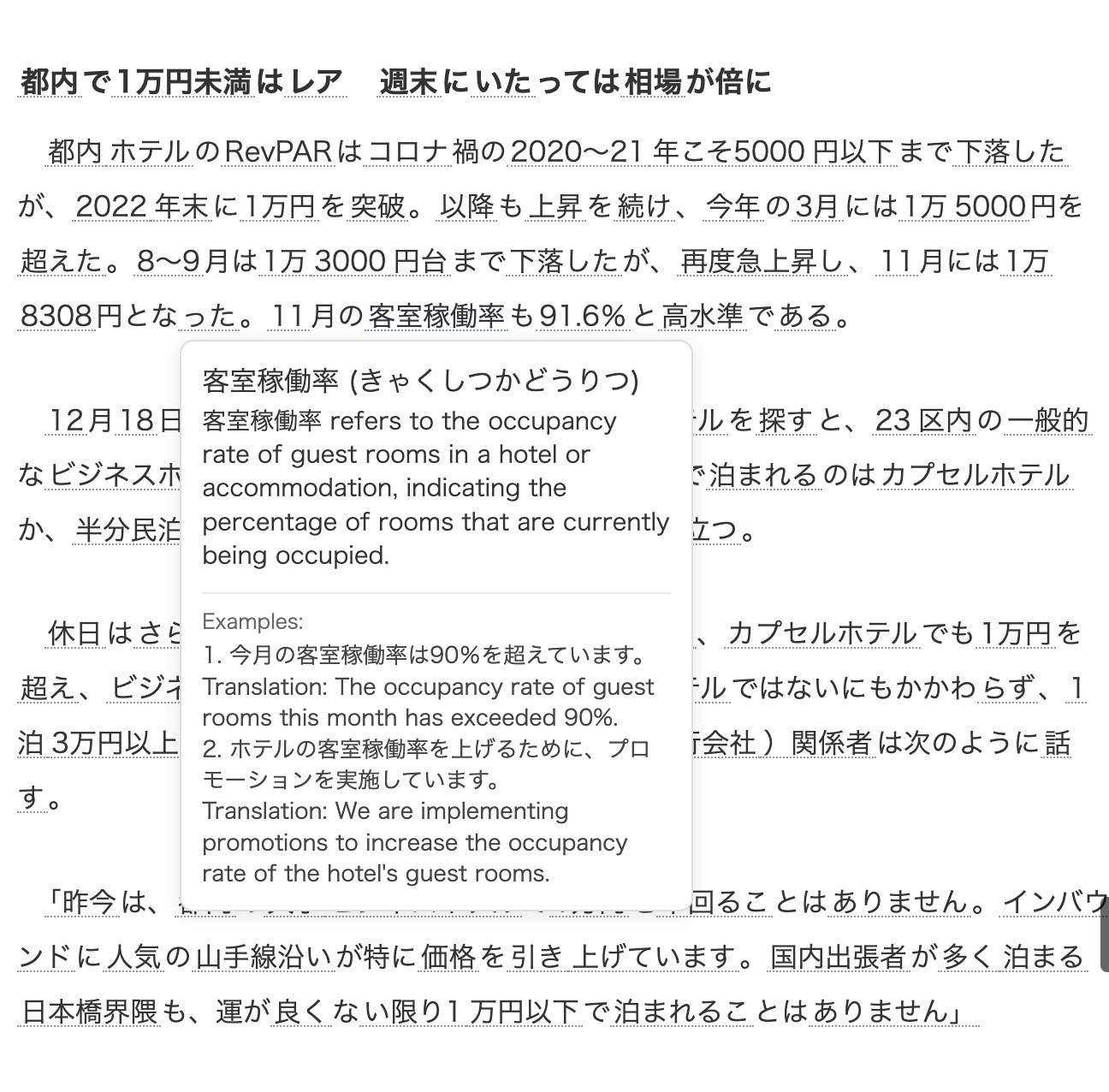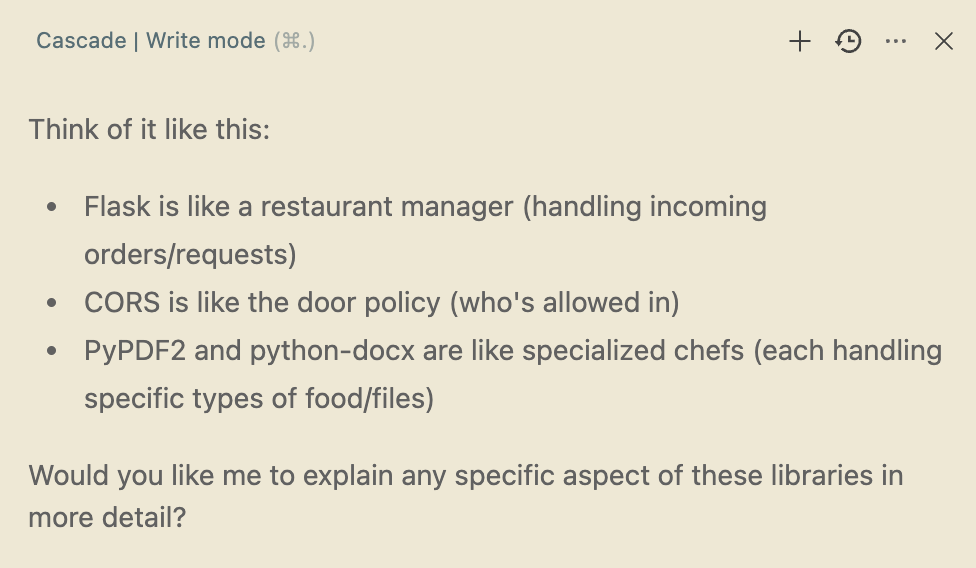Building without coding: What Windsurf really taught me
We're all builders now
Yesterday, I spent a few hours tinkering with Windsurf (Codeium’s AI code editor) and built a functional AI application without writing a single line of code: a Chrome extension for contextual Japanese word explanations. The experience was transformative, but not in the way I expected.

While most view Windsurf as an AI coding assistant, I saw its enormous potential as an educational platform that bridges the gap between technical and non-technical professionals.
As someone from a humanities background, I've long wrestled with the idea of learning to code. The traditional path – bootcamps, CS courses, tutorial hell – always felt risky. Would the investment pay off? Would the abstract concepts translate to practical value? My college CS intro class left me with more questions than answers.
Windsurf flipped this dynamic on its head. Instead of starting with fundamentals, I began by building. The AI served as both engineer and mentor, translating my plain-English product requirements into functional code while explaining technical concepts in accessible terms. When bugs appeared, I simply took screenshots of the error messages and shared them with the AI. No technical explanation needed from my end – the AI could analyze these images, identify the problems, and patiently guide me through fixes, explaining each step in plain English.
This "build first, learn later" approach transformed my relationship with code. Rather than viewing it as an impenetrable wall of commands, I began to see each line as a practical solution to a specific problem. The AI's ability to break down complex concepts using simple language and relevant metaphors made technical concepts click in ways my CS class never did.
While I'm still not writing code, I've gained something equally valuable: technical literacy. I now have a basic understanding of the frameworks, considerations, and trade-offs involved in building AI applications. This knowledge has the potential to transform how I collaborate with engineering teams and articulate requirements – bridging a gap I've long felt in cross-functional work.
Perhaps the most profound impact was psychological. The experience was exhilarating and liberating – like having an army of endlessly patient software engineers at my beck and call, ready to execute even my most trivial ideas with enthusiasm. Windsurf didn't just eliminate the intimidation factor of development; it made me feel genuinely empowered to create. The experience showed me that in an AI-driven world, the key differentiator isn't necessarily coding ability – it's understanding user needs and problem spaces.
Of course, Windsurf has its constraints. While perfect for prototypes and personal tools, building production-ready applications with sophisticated features remains challenging. Complex projects can lead to debugging loops that are difficult to escape without deeper technical knowledge.
Yet, Windsurf represents more than just a new way to build applications – it's a revolutionary approach to technical education. By allowing non-technical professionals to experience the building process firsthand, it creates an organic path to technical literacy that feels natural and immediately applicable.
For go-to-market professionals like myself, this capability is particularly powerful. When those responsible for understanding market needs can also participate in building solutions, the path to product-market fit becomes more direct and iterative. The implications are profound: those of us who never saw ourselves as "builders" – the marketers, the writers, the strategists – can now experience the thrill and insight that comes from bringing ideas to life through code. Building without coding isn't just about creating products; it's about discovering that we were all capable of being builders all along. We just needed the right tools to show us how.



You seem good; what exactly do you wish to build?
Another inspiring idea! I only build a LLM benchmark from ground just using the bug dealing method you have mentioned. Hands up for the "learning through practicing"!